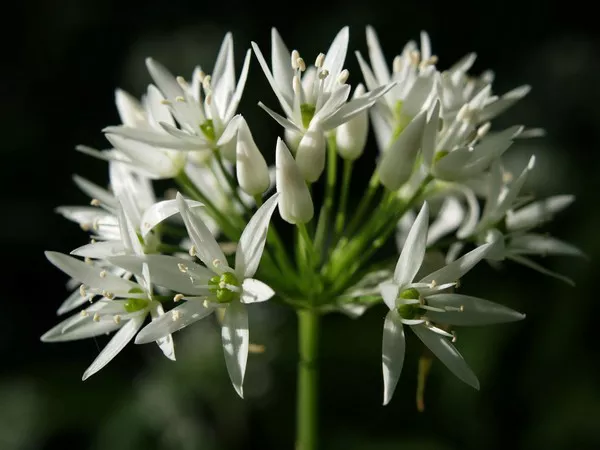Keeping a lush garden or thriving indoor greenery is a rewarding endeavor, but it often comes with the challenge of combating persistent pests. These unwelcome visitors can wreak havoc on your plants, compromising their health and aesthetics. Fortunately, there are effective strategies to deter and eliminate pests, ensuring your green companions flourish. In this comprehensive guide, we will explore a variety of methods to stop pests from eating your plants, safeguarding your botanical haven.
Identifying and Understanding Pests
Pests come in various forms, from tiny insects to larger mammals, and understanding the specific culprits targeting your plants is crucial. Conduct regular inspections, looking for signs such as chewed leaves, discolored foliage, or the presence of eggs. Common plant pests include aphids, mealybugs, slugs, and rodents. Once you identify the invaders, you can tailor your pest control approach to address their specific weaknesses.
Cultural Practices for Pest Prevention
Implementing sound cultural practices is a foundational step in creating a pest-resistant environment for your plants. Adequate spacing between plants promotes airflow, reducing the risk of fungal infections that can attract pests. Proper watering is equally vital; overwatering can lead to root rot, attracting pests, while underwatering weakens plants, making them more susceptible to infestations. Additionally, regularly remove debris and fallen leaves, as they can harbor pests and diseases.
Beneficial Insects as Natural Predators
Harness the power of nature by introducing beneficial insects that prey on pests. Ladybugs, lacewings, and predatory beetles are excellent choices for controlling aphids and other small insects. These natural predators act as a sustainable and environmentally friendly solution, maintaining a delicate balance in your garden ecosystem. Consider planting flowers that attract these beneficial insects, creating a welcoming habitat that fosters a self-sustaining pest control system.
Neem Oil: A Natural Pest Repellent
Neem oil, derived from the neem tree, is a potent and natural deterrent against a wide range of pests. Its active compounds disrupt the life cycle of insects, inhibiting their feeding and reproduction. Dilute neem oil according to package instructions and spray it on your plants, paying special attention to the undersides of leaves where pests often hide. Regular application can serve as a preventive measure and help control existing infestations without harming beneficial insects.
Homemade Pest Repellent Sprays
Crafting your own pest repellent sprays allows you to control what goes into the mixture and avoid harmful chemicals. Garlic, chili peppers, and soap are common ingredients in homemade sprays. Blend these ingredients with water, strain the mixture, and spray it on your plants. The pungent scent and taste of these concoctions act as a powerful deterrent, discouraging pests from munching on your greenery.
See Also: How do pests affect plants?
Companion Planting for Pest Control
Strategically selecting companion plants can enhance your garden’s resilience against pests. Some plants release natural compounds that repel insects, helping protect neighboring plants. For example, planting marigolds alongside vegetables can deter nematodes, while basil can help repel mosquitoes and flies. Research companion planting combinations that suit your garden and incorporate them into your planting scheme to create a harmonious and pest-resistant environment.
Physical Barriers: Fencing and Row Covers
Creating physical barriers is an effective way to keep larger pests at bay. Install fences around your garden to deter mammals like rabbits and deer. Row covers made of lightweight fabric can protect plants from flying insects while allowing sunlight and rain to reach your greenery. Ensure that these barriers are properly secured and regularly inspected to address any wear or damage.
Diatomaceous Earth: A Natural Pest Killer
Diatomaceous earth, a fine powder made from fossilized diatoms, is a safe and natural pest control option. Sprinkle a thin layer on the soil surface or directly on plants, forming a barrier that damages the exoskeletons of insects, causing them to dehydrate and perish. Diatomaceous earth is particularly effective against crawling insects like ants, slugs, and beetles, providing a non-toxic solution for protecting your plants.
Essential Oils for Pest Repellency
Harness the aromatic power of essential oils to create potent pest repellents. Oils such as peppermint, eucalyptus, and citronella are known for their ability to deter pests with their strong scents. Mix a few drops of these essential oils with water and a mild soap, then spray the solution on your plants. The lingering fragrance acts as a deterrent while adding a pleasant aroma to your garden.
Monitoring and Early Intervention
Regular monitoring is key to catching pests early before they cause significant damage. Inspect your plants regularly, especially the undersides of leaves and along stems. If you notice signs of infestation, take prompt action. Prune affected areas, remove and dispose of severely infested plants, and treat the remaining ones with the appropriate pest control method. Early intervention is crucial in preventing the rapid spread of pests throughout your garden.
Sustainable Practices for Long-Term Pest Management
Building a resilient and pest-resistant garden requires a holistic approach that includes sustainable practices. Focus on improving soil health through organic amendments and composting. Healthy soil fosters robust plant growth, making them less susceptible to pests. Rotate crops regularly to disrupt the life cycles of soil-dwelling insects and pathogens. By prioritizing sustainability, you create a long-term strategy for managing pests while promoting the overall well-being of your garden.
Conclusion
In the battle against pests, a combination of preventive measures, natural remedies, and sustainable practices will fortify your plants and create a thriving haven. By understanding your plants, identifying potential threats, and implementing a diverse range of strategies, you can enjoy a pest-free garden that showcases the beauty of nature. Embrace these techniques, and let your greenery flourish in an environment free from the grasp of unwanted visitors.


